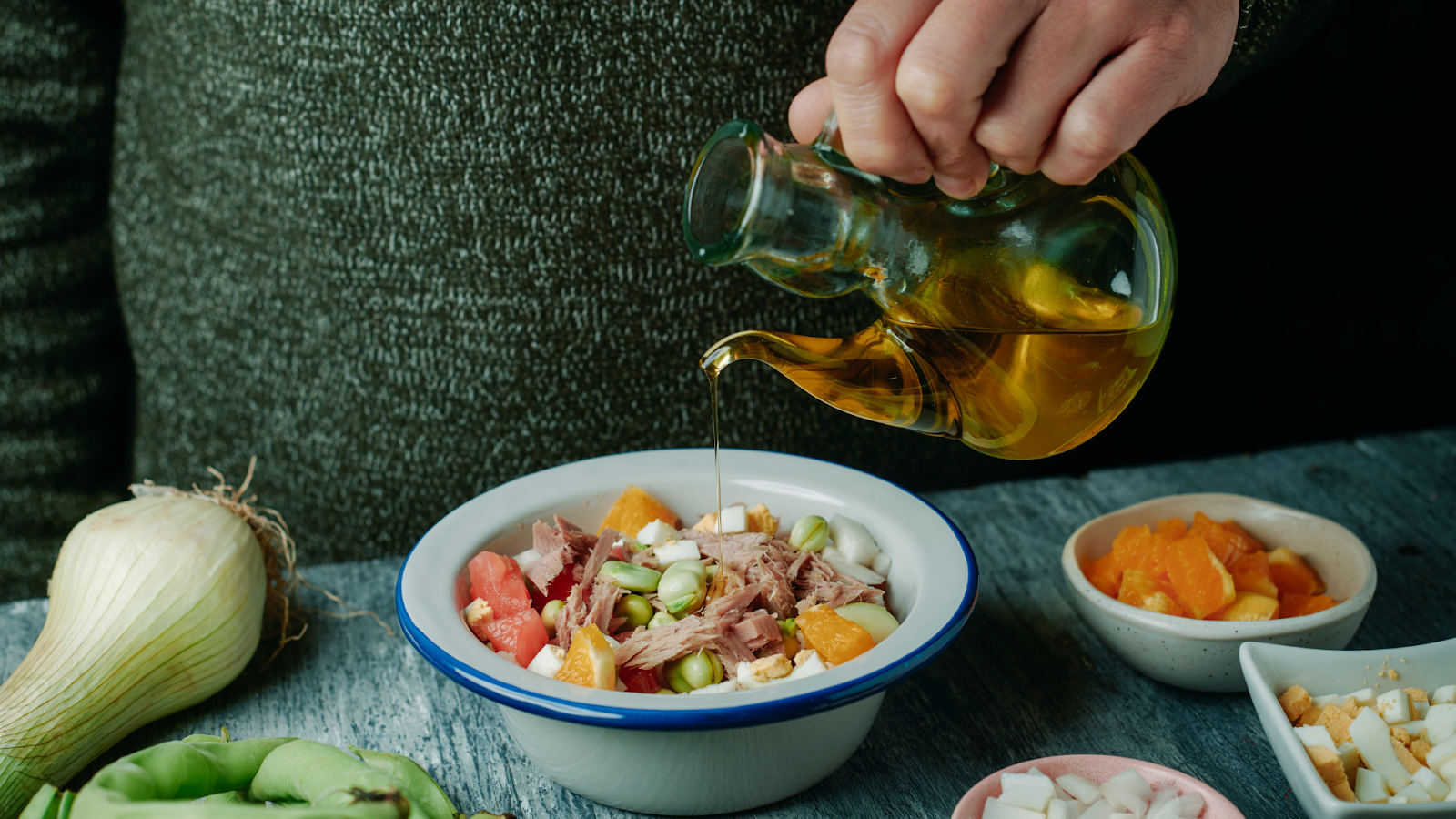Health
High cholesterol? Try these lifestyle tweaks

Medication may be needed to treat high cholesterol, but small, consistent lifestyle changes can make a real difference too.
By Carolyn Tate
If your doctor has delivered the news that your cholesterol is on the high side, you’re in good company. Around 1 in 3 Australians has elevated cholesterol levels. But many of us are oblivious, only finding out when something goes wrong or when a routine blood test throws up an unexpected result.
High cholesterol doesn't usually announce itself. You can feel perfectly well, look healthy, exercise regularly, and still have dangerously high levels quietly doing damage to your arteries.
Lucy Hall, CEO and founder of Hearts4Heart, a non-profit organisation supporting people with heart disease, has seen how high cholesterol catches people off guard. And while medication plays an important role in managing cholesterol, Hall is passionate about helping people understand that lifestyle changes can make a real difference too.
The diet myth that needs busting
If you've been avoiding fats because you think they're bad for your cholesterol, this is important: not all fats are created equal.
"Many people still think all fats are bad, but that's not true. Some fats are healthy; it's about choosing the right ones," Hall explains. "Swapping saturated and trans fats, such as processed meats, pastries and fried foods, with healthy unsaturated fats like those found in olive oil, avocados, nuts, and oily fish, can have an impact. These fats help raise 'good' HDL cholesterol and lower 'bad' LDL cholesterol."
But if you’re cooking with oil, that can change the equation. "Cooking also alters fat,” says Hall. “As an example, extra virgin olive oil is healthy, but if you put it in the fryer, it becomes saturated fat."
More on this: 8 best and worst oils for your health
The key, Hall says, is patience and consistency in making dietary switches. "It doesn't happen overnight, but small, consistent changes can make a difference over time."
What actually happens when you change your diet
So what's going on inside your body when you start eating better?
"When you move toward a heart-healthy diet, the body begins to balance its cholesterol and other fat metabolism more effectively," says Hall. "Levels of LDL cholesterol and other fats in the blood start to improve as the liver processes fats more efficiently, and inflammation in the blood vessels can decrease. Long-term attention to diet can prevent plaque build-up in the arteries."
The dangerous myths about cholesterol
Hall says the biggest danger is assuming you're safe because you look healthy.
"One of the biggest misconceptions is that cholesterol is only a problem for people who are overweight or who have an unhealthy diet. The truth is, you can look perfectly healthy on the outside and still have dangerously high cholesterol because of factors such as genetics," she explains.
"Conditions like familial hypercholesterolaemia (FH) cause the body to produce too much cholesterol, regardless of lifestyle. I've met so many people who are active and eat well but are shocked to discover they have high cholesterol. Or worse, a loved one is lost to heart disease. It's devastating because it could have been prevented but they found out too late."
What works for your friend or even a sibling might not work for you, so it’s important to get personal advice from your doctor.

"Cholesterol levels considered normal for some people may not be normal for others, especially if there are other contributing factors or risks for heart disease,” she says. “One size does not fit all, so it's important to speak to your treating practitioner about the best course of action for you."
When lifestyle changes aren't enough
Medication isn’t anyone’s first choice, but Hall is a straight talker when it comes to the stakes.
"I completely understand why some people may feel reluctant,” she says. “No one likes the idea of taking medication for the rest of their life… Nevertheless, it's so important to understand that taking medication can literally save your life."
She also stresses that lifestyle and medication aren't an either-or choice. "Lifestyle changes, such as improving diet, increasing physical activity, limiting alcohol, and quitting smoking are critical factors. But these measures alone are insufficient where high cholesterol has caused damage to their arteries. Therefore, some form of cholesterol-lowering medication is essential."
For some people, genetics also means medication is necessary. "Sometimes, no matter how healthy your lifestyle is, your body still produces too much cholesterol. Cholesterol-lowering medications, like statins, can provide vital protection against serious complications such as heart attack or stroke.
"I encourage people to have an open and honest conversation with their doctor to find a treatment plan that feels right for them.”
When lifestyle changes could make a real difference
Hall shares the example of one woman in her 50s who joined Hearts4Heart's support community. "She had been struggling with high cholesterol for years. She started making small changes like swapping butter for olive oil, adding oats to her breakfast, walking 30 minutes a day, and cutting back on processed foods, in addition to taking her medication."
The results were quick and life-changing: "Within six months, her LDL cholesterol dropped significantly, and her HDL levels improved too. The added benefit was she felt more energised and motivated to keep going, which is vital to remember. It doesn't happen overnight, but it really showed how consistent, realistic changes can make a difference."
What happens as we age
Cholesterol management needs to evolve as we get older and our needs change.
"I wish more people knew that cholesterol management is about ongoing prevention, not just treatment,” says Hall. “We need to be looking after our heart from an early age. However, as we get older, our metabolism slows and hormone levels change, which can naturally increase cholesterol levels even if our lifestyle hasn't changed."
Her advice? "Regular heart health checks are important, along with reviewing medications and staying engaged with your GP. It's never too late to make changes, and every small step can help protect your heart for the long term."
Because ultimately, you can't manage what you don't measure. And when it comes to cholesterol, knowing your numbers might just save your life.
The information on this page is general information and should not be used to diagnose or treat a health problem or disease. Do not use the information found on this page as a substitute for professional health care advice. Any information you find on this page or on external sites which are linked to on this page should be verified with your professional health care provider.
Feature image: iStock/nito100
Tell us in the comments below: Do you have any tips for watching your cholesterol?

More ways to take care of your health:
